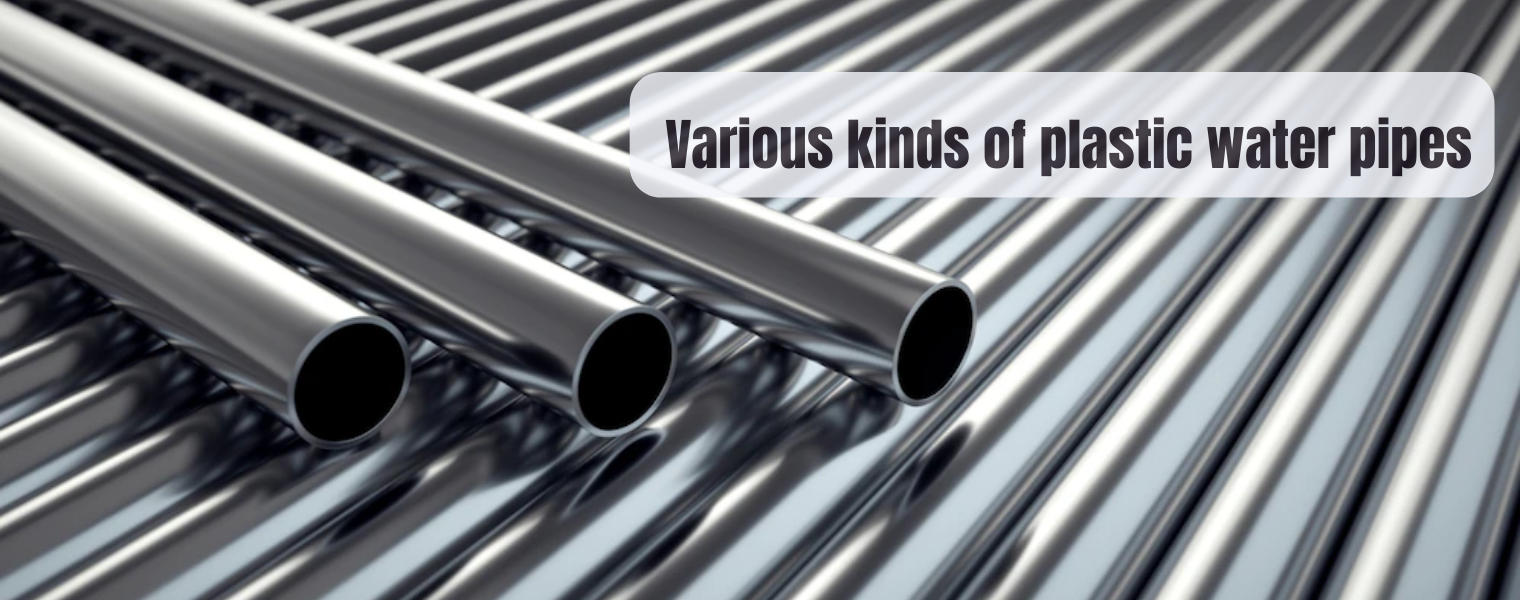
For the majority of home and commercial plumbing systems, plastic water pipes have been the favored pipes. In contrast to iron and metal, which eventually rust, they are robust, lightweight, and corrosion-resistant. Additionally affordable, plastic water pipes are simple to transport and install. The fact that plastic water pipes can be recycled makes them environmentally friendly, which is their best quality. Today's market offers many various varieties of plastic water pipes. Let's examine a few of them.
Polyvinyl chloride, sometimes known as PVC, is one of the most popular types of plastic water pipes and has a wide range of applications. It is employed for major water lines but never for applications requiring hot water because it melts at temperatures above 140°F. Due to their reduced rigidity, PVC pipes are simple to mold. They are the perfect choice if you want a pipe that will last you for a significant amount of time because they are sturdy and resilient.
Since these pipes are lightweight, moving them is simple. You don't need to be concerned about PVC pipes getting damaged while being transported. PVC pipes have a number of drawbacks, but one of the biggest is that they are prone to cracking.
Commonly called Cross-linked Polyethylene. The majority of residential plumbing systems use PEX, a very popular type of plastic water pipe. It is employed in the hot and cold water systems for the kitchen and bathroom. Because PEX pipes are color-coded, it is simple to distinguish between hot and cold water lines.
Due to their flexibility, these kinds of plastic water pipes are simple to install. PEX pipes are available in a variety of sizes with a diameter ranging from 14 to 4 inches. 12, 34, and 1-inch diameter pipes are the most frequently utilized dimensions for water supply lines. PEX pipes are best suited for indoor water lines because of their high sensitivity to UV light. Since PEX is semi-permeable, liquid can seep through the pipe.
A plastic water pipe called high-density polyethylene is used for practically all plumbing requirements. It is a popular option for many because it is strong and long-lasting. Due to its low coefficient of friction, which permits water to move smoothly inside, HDPE Pipes can lower water pressure. They are an environmentally friendly choice and resistant to corrosion.
With the aid of heat-fusion welding, HDPE pipes are joined. As a result, they are never leaky. Because they are resistant to corrosion, they can be used safely as water lines in both domestic and commercial plumbing systems. HDPE pipes and fittings are utilized for sewage, chemicals, and compressed gases in addition to water lines.
This particular variety of PVC pipe has had a chlorine treatment to increase its resistance to high pressures and temperatures. Most industrial plumbing systems use CPVC. Domestic hot water lines are another application for it that PVC pipes cannot be utilized for. Water pipes made of CPVC are lightweight and inexpensive, reducing strain and accidents among workers.
They are simple to install, cut, and maintain. Since no open flame is necessary to combine the material, CPVC pipes also constitute the safer choice. CPVC pipes, however, are prone to breaking if they are left in direct sunlight for a lengthy period of time.
Many people still favour plastic water pipes, which have been around for a very long time. Other than only plumbing systems, they are employed for a variety of other purposes. It's crucial to think about the pipe's qualities and features before choosing a plastic pipe for your water line. Make sure to take each of the aforementioned features into account individually.
If you want top-notch items for your project, be sure to choose PVC pipe and HDPE pipe from the best PVC and HDPE pipe manufacturers. Polyfab takes pleasure in providing clients with premium, cutting-edge Plastic Pipes goods at affordable pricing. Ethiopia, Kenya, Ghana, and other nations are just a few of the international markets that Polyfab Plastic Industry serves.